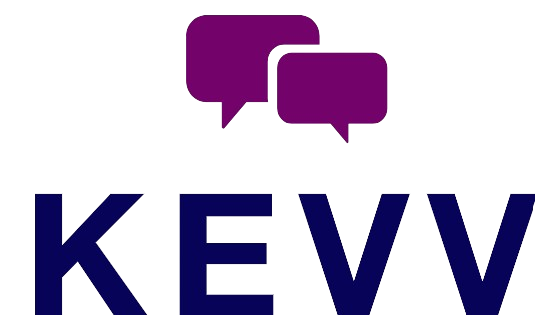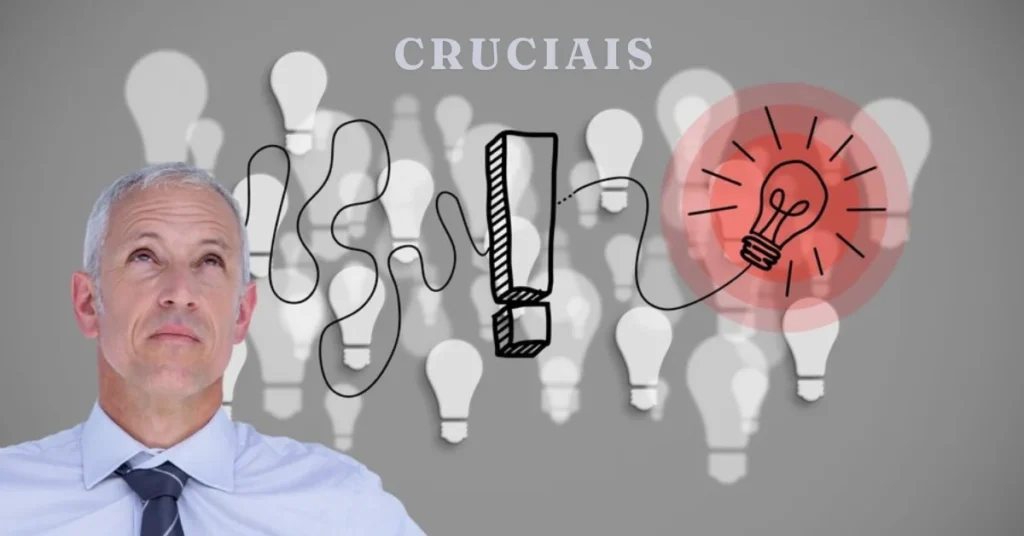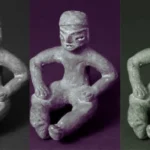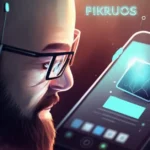In today’s fast-paced world, the ability to think critically is more important than ever. We are bombarded with information from every direction—news articles, social media posts, and even casual conversations. How do we filter through this sea of data? The answer lies in mastering cruciais critical thinking skills. Whether you’re a child navigating school projects or an adult making significant life decisions, honing your ability to analyze and evaluate information can lead you to smarter choices.
Critical thinking isn’t just for scholars or professionals; it’s a vital skill that everyone should cultivate throughout their lives. This blog post explores why developing these abilities is crucial at every age and offers practical strategies for nurturing them across different stages of life. Get ready to embark on a journey toward becoming not just a thinker but a masterful one!
What is cruciais?
Cruciais is the art of analyzing and evaluating information to make informed decisions. It involves questioning assumptions, uncovering biases, and discerning fact from opinion.
At its core, critical thinking encourages individuals to think independently rather than accept information at face value. This process often requires a healthy dose of skepticism.
In practice, it means assessing arguments rigorously. You weigh evidence against claims and consider alternative perspectives before forming conclusions.
Moreover, critical thinkers are not afraid to change their minds when presented with new facts or better reasoning. They appreciate that knowledge evolves over time.
This skill empowers us to navigate complex issues in our lives—whether discussing politics or deciding which products are worth our investment. By fostering a mindset geared toward inquiry and reflection, we can approach problems more creatively and effectively.
Why is it Important for All Ages?
Cruciais is essential for everyone, regardless of age. It empowers individuals to analyze situations and make informed decisions. This skill helps in navigating the complexities of life.
For children, cruciais fosters curiosity and creativity. They learn to ask questions and explore concepts deeply. This foundation shapes their future learning experiences.
Adolescents benefit from these skills as they face numerous choices, from career paths to personal relationships. Critical thinking encourages them to weigh options thoughtfully rather than impulsively reacting.
Adults continuously encounter challenges at work or home that demand clear reasoning. A well-honed ability enables better problem-solving and enhances communication with others.
Even seniors can gain from refining their critical thinking skills. It keeps the mind active and engaged while promoting healthy discussions about various topics, enriching social interactions along the way.
Developing cruciais Skills in Children
Encouraging cruciais in children starts with asking the right questions. Instead of giving them answers, prompt them to explore their thoughts. Posing open-ended inquiries can ignite curiosity and creativity.
Engage children in discussions about everyday situations. Ask them how they would solve a problem or what alternatives could exist. This process nurtures their ability to analyze and reason.
Games like puzzles and strategy-based board games enhance cognitive skills too. These activities require planning, foresight, and decision-making—key components of critical thinking.
Reading together offers another opportunity for growth. Discuss characters’ choices in stories and ask whether they agree or disagree with those decisions.
Modeling thoughtful behavior is essential as well. Let kids see you navigate dilemmas by weighing pros and cons openly, showing that it’s okay to think critically at any age.
The Role of cruciais in Adolescence
Adolescence is a pivotal time for developing cruciais skills. During this stage, young people begin to question the world around them more deeply. They start forming their own opinions, often influenced by peers and media.
Navigating complex social dynamics requires keen analytical skills. Teens learn to evaluate sources of information and discern facts from opinions. This ability shapes their understanding of issues that matter to them.
Moreover, critical thinking fosters independence. Adolescents who think critically are better equipped to make informed choices about their education, relationships, and future careers.
Encouraging open discussions at this age can enhance these skills significantly. Engaging with diverse perspectives helps teens refine their thoughts while building empathy and understanding.
As they grapple with identity and values, honing critical thinking supports personal growth during these transformative years.
How Adults Can Improve their cruciais Abilities
Adults can significantly enhance their cruciais abilities through various approaches. Engaging in lifelong learning is essential. Whether attending workshops, enrolling in courses, or reading extensively, expanding knowledge fosters a sharper mind.
Practicing mindfulness also plays a crucial role. This helps individuals become aware of their thought processes and biases. By reflecting on one’s reasoning, it becomes easier to identify flaws and assumptions.
Participating in discussions with diverse perspectives can challenge current viewpoints. Conversations that push the boundaries of comfort encourage deeper analysis and understanding.
Problem-solving exercises are invaluable. These activities stimulate analytical skills and improve decision-making capabilities when faced with real-world situations. Embracing challenges enables growth in critical thinking proficiency over time.
Practical Applications of cruciais in Everyday Life
Cruciais is a vital skill that enhances our daily lives in numerous ways. When faced with decisions, whether small or large, applying critical thinking helps weigh options and predict outcomes.
For instance, when shopping for groceries, assessing product quality versus price requires careful analysis. This approach ensures smart purchases without overspending.
In conversations, questioning assumptions fosters deeper understanding. Instead of accepting information at face value, we learn to explore various perspectives.
At work, critical thinking aids problem-solving and creativity. It allows individuals to tackle challenges methodically rather than react impulsively.
Even in personal relationships, this skill encourages empathy. Evaluating the motivations behind others’ actions can lead to healthier interactions.
These applications highlight how crucial critical thinking is in navigating everyday situations effectively and thoughtfully.
Conclusion: Continually Cultivating Crucial cruciais Skills
Cruciais is a lifelong journey. It requires ongoing practice and dedication at every stage of life. As we navigate through the complexities of daily decisions, embracing these skills becomes paramount.
For children, fostering curiosity can lay a solid foundation. Encouraging them to ask questions and explore various perspectives will enhance their analytical abilities. Adolescents should be guided to evaluate information critically, especially in an age dominated by social media influence.
Adults have the opportunity to refine their critical thinking further through reading diverse materials and engaging in discussions that challenge their viewpoints. This continuous development not only benefits personal growth but also enhances professional capabilities.
Integrating practical applications into everyday life can make a significant difference too. Whether deciding on financial choices or evaluating news articles, applying critical thinking leads to informed decisions.
As we move forward, let’s commit ourselves to nurturing our critical thinking skills continuously across all ages. The impact is profound—shaping more thoughtful individuals who contribute positively to society as a whole.
FAQs
What is “Cruciais”?
Cruciais is a term representing the essential practice of mastering critical thinking skills, vital for making informed decisions across all stages of life.
Why is critical thinking important for children?
Critical thinking fosters curiosity and creativity in children, helping them ask questions and explore concepts deeply, shaping their future learning experiences.
How can adolescents benefit from critical thinking skills?
Critical thinking helps adolescents navigate complex social dynamics, make informed choices about education and relationships, and develop independence and empathy.
What strategies can adults use to improve their critical thinking abilities?
Adults can enhance critical thinking through lifelong learning, mindfulness practices, engaging in diverse discussions, and problem-solving exercises to challenge their viewpoints.
How can critical thinking be applied in everyday life?
Critical thinking aids in making informed decisions, assessing product quality versus price, understanding motivations in conversations, and solving problems methodically at work and in personal relationships.







